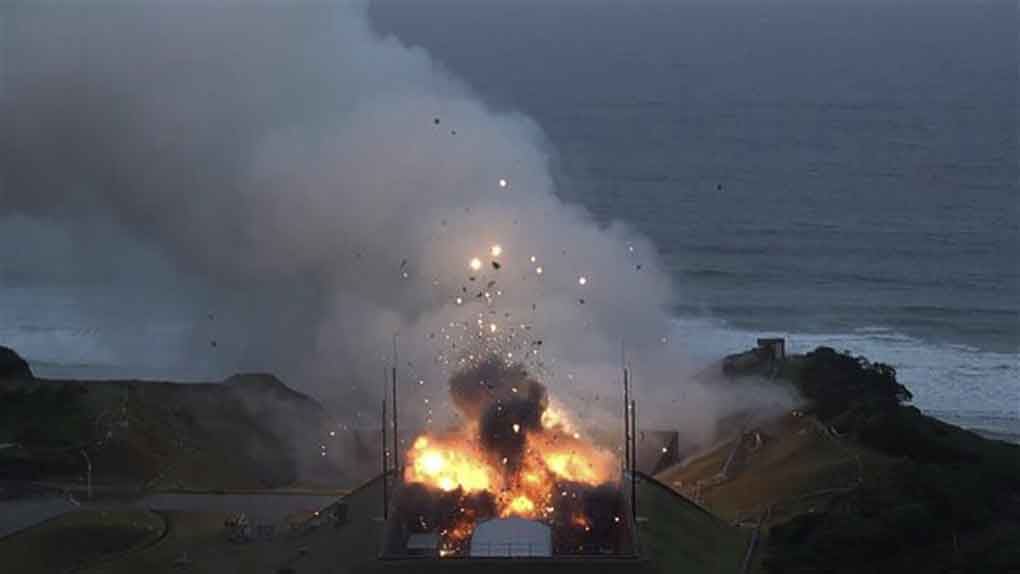The source said the blast occurred 49 seconds after the ignition at the Tanegashima Space Center in Kagoshima Prefecture. No injuries or damage to buildings outside the center were reported in this, the second such incident in 16 months.
The ground test for the second-stage engine was scheduled to last about 2 minutes, but the combustion pressure was higher than expected. The Aerospace Exploration Agency (JAXA) will continue to investigate the cause, the agency said in a statement.
JAXA project director Takayuki Imoto lamented at a news conference that he could not meet expectations: “We can learn from the failures. We will use this opportunity to develop a more reliable rocket,” he said.
The engine was 3.2 meters long with a 2.5 meter-diameter. The rocket carried about 18 tons of solid fuel, about three tons more than the second-stage engine of the conventional Epsilon rocket.
The space agency plans to launch an Epsilon rocket using almost the same type of engine with a Vietnamese satellite on board by the end of next March, but the need for further research makes changes almost inevitable.
ied/arm/mem/nv









